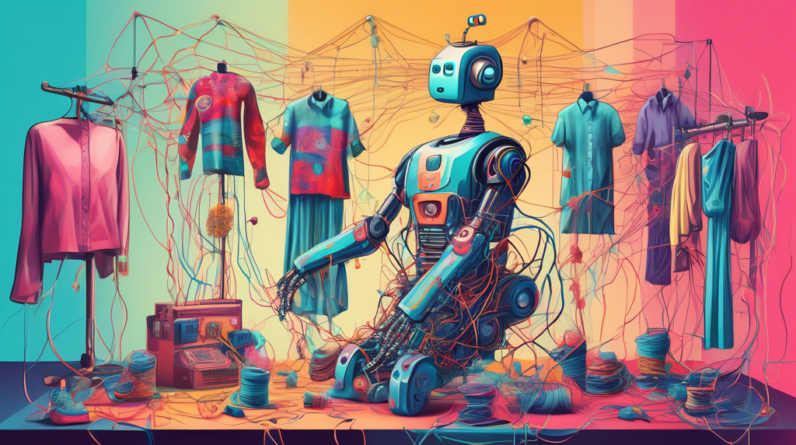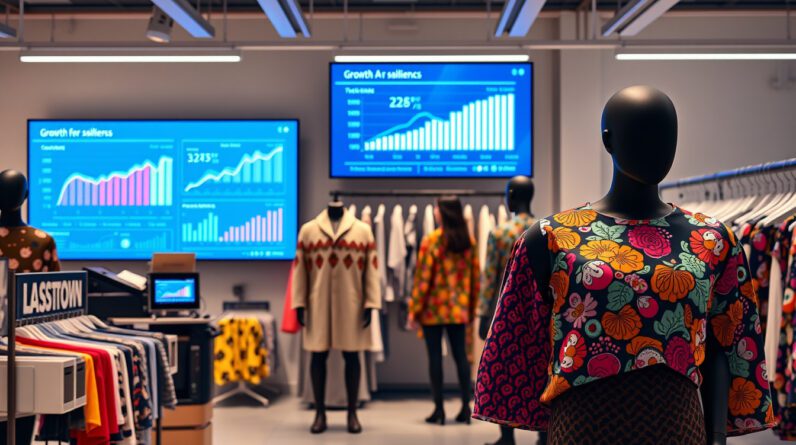
Unraveling the Threads: How AI is Transforming Clothing Supply Chains
The global fashion industry, a vibrant tapestry of creativity and commerce, is underpinned by a complex network of suppliers, manufacturers, distributors, and retailers. This intricate web, known as the clothing supply chain, is often fraught with challenges, from opaque sourcing practices to inefficient logistics and wasteful overproduction. However, a technological revolution is underway, one where artificial intelligence (AI) is poised to unravel these complexities and weave a more sustainable and ethical future for fashion.
AI’s Multifaceted Impact on Supply Chain Visibility
At the heart of a resilient and responsible supply chain lies visibility – the ability to track and trace the journey of a garment from its raw material origins to the hands of the consumer. AI offers unprecedented capabilities in enhancing this crucial aspect:
- Mapping the Source: AI-powered tools can analyze vast datasets of supplier information, certifications, and even satellite imagery to create detailed maps of supply chains. This transparency allows brands to identify potential risks, such as unethical labor practices or environmental violations, and make informed sourcing decisions.
- Real-Time Tracking: By integrating sensors and tracking devices with AI algorithms, brands can monitor the movement of goods in real-time throughout the supply chain. This not only improves logistics efficiency but also enables greater accountability and reduces the likelihood of counterfeiting and gray market sales.
- Predictive Analytics: AI’s ability to analyze historical data and identify patterns is invaluable in forecasting demand, optimizing inventory levels, and minimizing waste. By accurately predicting trends and consumer preferences, brands can produce only what is needed, reducing overstock and contributing to a more sustainable fashion ecosystem.
Optimizing Efficiency and Agility with AI
Beyond enhancing visibility, AI is transforming the operational efficiency and agility of clothing supply chains:
- Automated Processes: Repetitive and time-consuming tasks, such as order processing, quality control, and inventory management, can be automated using AI-powered systems. This not only frees up human workers for more strategic roles but also reduces the potential for human error, leading to greater accuracy and efficiency.
- Smart Warehousing: AI-powered robots and automated guided vehicles (AGVs) are revolutionizing warehouse operations. These intelligent systems can optimize storage space, retrieve products with speed and precision, and even assist with packing and shipping, leading to significant cost savings and faster delivery times.
- Dynamic Pricing: In the fast-paced world of fashion, pricing is paramount. AI algorithms can analyze real-time data, such as competitor pricing, inventory levels, and even social media sentiment, to dynamically adjust prices and maximize profitability while remaining competitive.
Enhancing Sustainability and Ethical Practices
The fashion industry’s environmental and social impact is under intense scrutiny. AI can play a transformative role in promoting sustainable and ethical practices throughout the clothing supply chain:
- Reducing Waste: By optimizing production planning, forecasting demand accurately, and enabling on-demand manufacturing, AI can significantly reduce the amount of waste generated throughout the supply chain, minimizing the industry’s environmental footprint.
- Promoting Circularity: AI-powered platforms are emerging that facilitate clothing rental, resale, and recycling, extending the lifecycle of garments and contributing to a more circular fashion economy.
- Ensuring Ethical Sourcing: As mentioned earlier, AI’s ability to map and monitor supply chains enables brands to identify and address ethical concerns, such as unfair labor practices, child labor, and unsafe working conditions. By promoting transparency and accountability, AI can help create a more ethical and responsible fashion industry.
Navigating the Challenges and Embracing the Future
While the potential of AI to revolutionize clothing supply chains is vast, it’s essential to acknowledge the challenges and considerations:
- Data Privacy and Security: AI relies heavily on data, and ensuring the privacy and security of sensitive information, such as supplier details and customer data, is paramount. Implementing robust data governance policies and cybersecurity measures is crucial.
- Ethical Considerations: As with any transformative technology, it’s important to use AI responsibly and ethically. This includes mitigating potential biases in algorithms, ensuring fairness and transparency in decision-making, and protecting the rights of all stakeholders within the supply chain.
- Workforce Adaptation: The integration of AI will inevitably lead to shifts in the workforce. Upskilling and reskilling programs will be essential to equip workers with the skills needed to thrive in an AI-powered future.
The fashion industry is at a pivotal juncture. As consumers increasingly demand transparency, sustainability, and ethical practices, AI offers a powerful toolkit for transformation. By embracing the potential of AI and navigating the associated challenges responsibly, the industry can unravel the complexities of its supply chains and weave a future where fashion and technology intertwine to create a more equitable and sustainable world.





